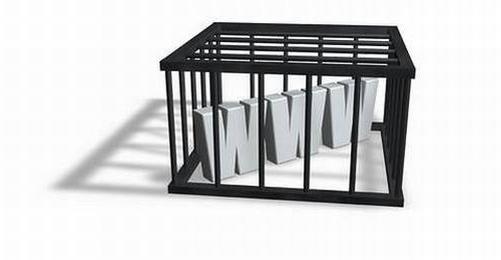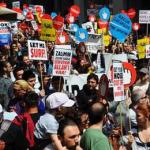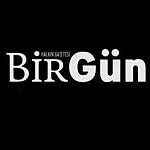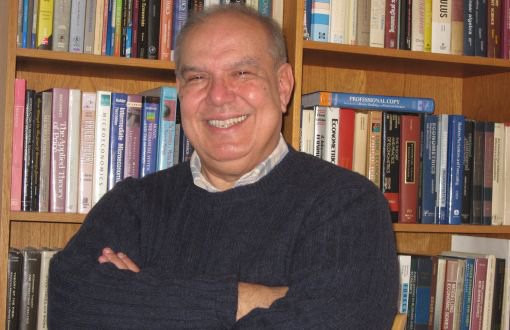With the enforcement of the "Draft Bill on Rules and Procedures of the Safety of Internet Use" expected for 22 August, every single internet user in Turkey will be obliged to use one of the internet filters defined by the Prime Ministry Telecommunication Association (BTK). The BTK approved the draft bill in the end of February this year.
All internet users in Turkey will have to choose between four different filter options, namely the family package, the children package, the domestic package or the standard package. The filter system will be defined by the government. bianet filed an annulment case to the Council of State on 13 April in order to "stop the execution" of the regulation.
"Rules must be predictable by addressees"
Assoc. Prof. Kerem Altıparmak from the Faculty of Political Sciences at Ankara University said in a statement made to bianet that the regulation violated the essential conditions of the state of law. Altıparmak underlined that the filter system to be imposed by the bill would constitute restrictions to freedom of expression, freedom of communication and private life.
According to the academic, the actual problem is "to give a decision in line with the requirements of the Constitution and international agreements regarding the intervention in fundamental rights and freedoms".
"The draft bill is violating the most essential rules of the state of law. (...) An intervention by the state in the fundamental rights and freedoms of a state of law must be predictable. If the intervention to come is not predictable, it is impossible to control whether this measure is appropriate, whether the substance of the right is being affected or whether this is necessary in a democratic society".
"The rules must be predictable by the addressees - this is the first rule of even the narrowest concept of a state of law", Altıparmak emphasized.
"Total lack of legal basis"
"According to the regulation, the BTK will design a 'white list' and a 'black list'. There is no means at all for the addressees, i.e. the internet sites and their users, to anticipate these lists".
"What is the black list? What will be assessed as harmful for children and families by the BTK? The government says if you do not know what is harmful for yourself or your children, I know and if you are a good parent you will do as I tell you", Altınparmak summarized his view on the draft bill.
"The BTK has no legal basis for such a draft bill. There is no law that would enable such a regulation. This is an application that was fully initiated by the administrative institution. The regulation was said to be based on the Electronic Communications Act but that law does not include this sort of authority either".
"The regulation restricts our freedom of expression. On the other hand, it restricts our freedom of obtaining and publishing information and our political freedoms. Moreover, there is the intervention in our private lives. These restrictions will be applicable by law", Altınparmak warned and added that the possibility of an arbitrary application of the regulation is very high.
"State of Law is not based on verbal assurances"
"Verbal assurances given by the government of a state of law do not mean anything. That is the reason for the existence of the state of law. The concept of the separation of powers is the natural result of this principle. (...) Without that assurance, it does not mean anything to say 'don't worry, we only want to protect your children'".
"The Council of Europe and the European Union has published decisions regarding that sort of filter systems. I do not know any example where the state has applied this kind of filter system".
'Opposing the law- creating damage difficult to repair'
Altıparmak furthermore pointed out that the criteria regarding what is going to be considered as harmful are not determined and neither is the sort of expertise that is going to define these criteria.
"The BTK, supervising this issue, is not a place of experts that have worked on the psychology of the child for dozens of years. In that case, it is really uncertain what the criteria will be to say 'This site is immoral; close it'", the academic argued.
In Altıparmak's opinion, the draft bill "is a very clear violation of the law. There are two conditions for the decision to stop the enforcement. One is a clear violation of the law; the second is the creation of damage that will be difficult or impossible to repair. Censorship will start from the day the regulation will be enforced. I think that there is a clear violation of the law and that damage will be created that is difficult to repair. But eventually, the judiciary will decide on this. Therefore it might not be right to talk about his matter too much beforehand. (EKN/EÖ/VK)

















.jpg)


